Article for the Women Driven Magazine, Written by Todd Phillips
As slow as the progress might feel for women trying to move into more senior roles in Canada’s automotive industry, it feels even slower for many Black women working within it.
We talked with three Black women who have worked in a variety of roles within OEMs and within dealerships about their experiences and what the industry looks like to them.
“This discussion about female representation at the C-Suite level is not new,” says Joyce Tshiamala, District Customer Service Manager, Hyundai Canada. “The automotive industry has been very slow to adapt.”
Tshiamala says she sees some progress, but the pace of change is just too slow. At the OEM level, at the current rate we see female CEOs, we might have to wait 15 years to see another in Canada, she says.
Before joining the auto industry about seven years ago, Tshiamala worked in the travel industry—where she witnessed a lot more women in leadership roles. “There was a fair amount of representation of women that I saw at the management or executive level. However, when I came into automotive, it was a striking difference. It was so noticeable,” she said.
Tshiamala works with a network of 16 dealerships throughout Ontario helping them achieve their customer experience business objectives within service and aftersales.
“It’s one thing to talk about a lack of representation for women, but when you look at representation for Black women, it’s even more concerning. You cannot be what you cannot see,” says Tshiamala.
She says she joined Accelerate Auto, a not-for-profit trying to increase representation of Black people throughout the industry to help speed the pace of change. “We ask ourselves: ‘Why are more Black people not interested in automotive? Well could it be perhaps Black girls are looking and there’s no one for them to see that looks like them.”
Tshiamala said she wants to help create a welcoming environment and culture for Black women in the auto industry that says: “Yes, you belong here.”

To increase diversity, the industry needs to be “intentional” about it. “It takes intentionality. A lot of organizations are noticing the need for diversity and they’re attempting to make changes within their organizations,” she said. “But we have to make sure that the changes that we’re bringing about are not simply to tick off a box or just to appear to be championing the cause.”
That means having “uncomfortable conversations” all the time and not just when it’s Black history month, or International Women’s Day, she said.
For her part, when Christina Morris arrived in the automotive industry, she wasn’t surprised to find so few females in leadership positions. “I joined the industry at an entry-level position, so my initial exposure to management or executives was limited, but you intuitively knew it was a male dominated industry,” said Morris, Manager, Customer Operations and Communication, Subaru Canada. “It’s reflective of the world that we live in—very patriarchal, very male driven.”
Morris said she’s witnessed other industries shift more quickly to a balanced dynamic with more women in executive positions. “The auto industry is behind the times,” she said.
Morris said outside of assumed gender roles, she’s not sure why the auto industry isn’t attracting as many women, but she wonders if the biases start at a very young age. “There’s nothing about this industry that should make it exclusively male dominated. It has just been presented that way for so long, that it’s what we expect.”
Morris is neither aware of many women working in automotive now that sought out the industry specifically. “It’s one of those industries that you fall into and once there you realize, ‘Oh, this is great. Why is this such a huge secret? Why didn’t anyone ever tell me that the automotive industry was opportunity rich?”
That’s one of the reasons that Accelerate Auto is so active in promoting the industry to students at the high school and college level, to help change perceptions and combat built in biases and stereotypes. “Girls were never targeted as an audience with an interest in cars. Look at how Hot Wheels are marketed almost exclusively to boys. So from a very young age, the subconscious message to young girls and young women is that this industry is not for you.”
As for being one of few Black women in the industry, Morris said she’s not going to let that slow her down. “I tend to be an eternal optimist. So, if there are very few people in this space that look like me, well that’s my impetus to blaze a trail,” she said. “I’ll set a standard that would potentially entice the industry to consider more Black candidates, who have a lot to offer if the opportunities are presented to them.”
She said going through life in Canada as a Black woman, you tend to always be a minority in the boardroom. “That might not sound like a big deal to a lot of people, especially for those who are in the majority. But being the minority is an experience that provides a perspective that not everyone can understand.”
She said her friends sometimes ask her what that feels like. “I tell them that it’s hard going through life feeling unseen. I ask them to imagine walking into an office or boardroom being the only white person. It’s an experience that very few non-ethnic minority people have,” she said. “How comfortable would you be? How confident would you be in your role when you look around and there’s no one else that looks like you? Would you have that inner fortitude and self-confidence to say ‘I’m going to blaze a trail?’ Or would you maybe start looking for a job somewhere else where your peers look more like you?”
Morris said the discrimination she feels isn’t always overt, it’s more subtle than that. “It’s real. It’s not like someone explicitly says to you: ‘No you can’t sit here in this chair, you can’t be here. You’ll never achieve this,’” she said. “No one’s coming outright and saying these things, but the subconscious message that you see around you, just like with the Hot Wheels, is that this isn’t for you. There’s no space for you here, because we’ve never made space for anyone who looks like you, and we have no interest in doing so.”
She says that whether someone is discriminating out of malice or simply because they are blindly ignoring racial or gender disparities, it really doesn’t matter. “Whether it’s intentional or unintentional, the effect and impact are the same,” said Morris.
Morris said it has taken many years for the industry to talk about the role of women and be open to hearing women express their hopes for more advancement and better opportunities. “It took several years for the automotive industry to intentionally start planting seeds of opportunity for women, and now we are harvesting the fruits of those labours. We have the template, we know what we need to do. We just need to do it with a lens of racial inclusivity and equity.”
Thankfully, Morris did decide to blaze her own trail and has been recently promoted within Subaru to a new and challenging role dealing with customer operations and communications. Another step on her own ascension to greater heights.
Nessa Abraham’s introduction to the auto industry was a little different. At 20, she joined the accounting department at a dealership —and she was hired by a woman. “When I was interviewed, the Controller asked me what I wanted for my future. I told her ‘I want your job.’”
She said the woman did hire her, and said, “Let’s see what we can do to get there.” Now, Abraham now works as a Controller for an Ontario dealership.
Abraham has worked for nine dealerships throughout the GTA, including communities like Toronto, Brampton and Mississauga. Even though those communities have a lot of Black people, they were nowhere to be found in leadership roles in the dealerships. “I don’t believe I’ve ever seen a Black Sales Manager, General Sales Manager, definitely not a General Manager or Dealer Principal,” said Abraham.
Is there a barrier preventing that from happening? “I don’t know. For me, I would say because the dealerships are privately-owned, and usually the ones I’ve been at were handed down from a parent who previously owned it, so the ownership stays in the family,” she said, adding that the management team is usually someone who has been there for a long time. She’s only worked with one Dealer Principal who was a woman, and hopes to see more women leaders.
Abraham said she didn’t pay much attention to the disparity, until about the last five years. She noticed there were very few Black people working in any of the dealerships where she worked.
Abraham said she has brought the issue up as a lost business opportunity with senior leaders. “We can make more money if we’re more inclusive, I wholeheartedly believe that,” she said. “If we had more people that looked like our surrounding community here, it would generate more income. It would make people feel more comfortable coming in and say: ‘Hey, that’s cool. I can do business here because there are people here that look like me.”
She says until Dealers see a proven business case for greater diversity, they aren’t likely to change the status quo. “Unless they see an example where another dealership comes out and says, ‘You know what? I made an effort to diversify. My team has been so great for business. We’ve increased sales by 20-30%.’ I think then it will open their eyes,” said Abraham. Abraham also joined Accelerate Auto to try to make a difference for Black men and women entering the industry. To get involved, visit: www.accelerateauto.ca where you can register to become a member, volunteer or simply stay informed on this issue.

Exciting News! Building on the success of our Mentorship Program pilot, Accelerate Auto is thrilled to launch a new Mentorship Program tailored for women professionals in the automotive sector!
Contact the Accelerate Auto team if you are interested in joining us on this transformative and unparalleled journey as a mentor or mentee by sending an email to mentorship@accelerateauto.ca.
Other Related News
Personal branding propels success for Holly Leveque
In the fiercely competitive world of retail auto sales, standing out amidst a sea of salespeople is no easy feat. But for Holly Leveque, the newly appointed Sales Manager at Southbank Dodge and the first female to hold such a position at the store since its...
Leadership is pivotal in the career advancement of women
Although no concrete stats are available, most auto industry observers would agree that more women have found career success in the retail auto sector in the last 20 years than ever before. Although this is an encouraging development, those same observers would also...
Creating an effective multigenerational workforce
Experts define generations as follows:In many large workforces today, it’s possible that five generations are working in the same environment. Twenty-somethings are rubbing shoulders with people in their seventies and older, which is sociologically interesting, but...



